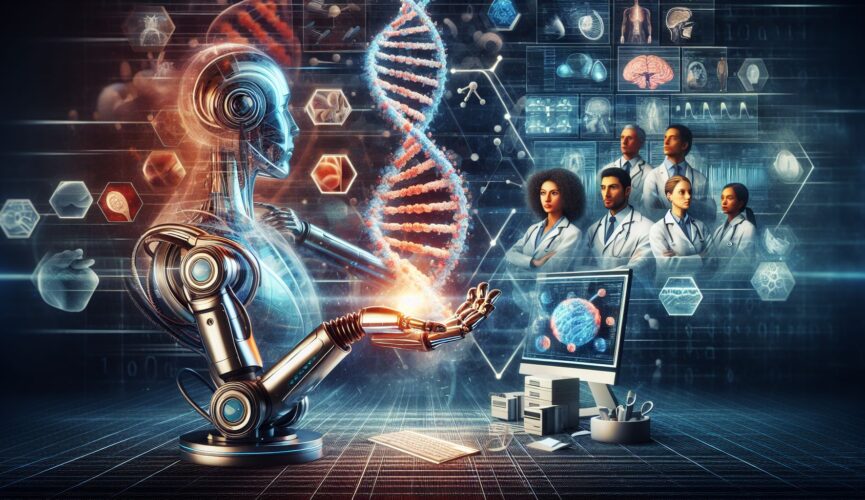Technology has been an integral part of human civilization, constantly shaping and revolutionizing various sectors. In recent years, one of the most significant areas to experience transformative changes is medicine. Advancements in technology have not only enhanced medical treatments and improved patient outcomes but have also opened up endless possibilities for further breakthroughs. This article explores the crucial role of technology in revolutionizing medicine and highlights some key advancements that have made a profound impact.
Introduction: Embracing Technology in Medicine
The convergence of technology and medicine has paved the way for extraordinary innovations, significantly improving the way healthcare professionals diagnose, treat, and monitor patients. From advanced diagnostic tools to revolutionary treatments, technology has become an essential ally in the healthcare sector. By embracing technology, medical practitioners have greatly streamlined processes, increased the accuracy of diagnoses, and enhanced patient care.
- https://www.opendata.nhs.scot/es/user/compraradderallsinreceta
- https://www.opendata.nhs.scot/es/user/comprartramadolsinreceta
- https://www.opendata.nhs.scot/es/user/comprarxanaxsinreceta
- https://www.opendata.nhs.scot/es/user/comprarzolpidemsinreceta
- https://www.opendata.nhs.scot/es/user/comprarviagrasinreceta
Body: Advancements Shaping the Future of Medicine
1. Artificial Intelligence (AI)
Artificial intelligence has emerged as a game-changer in the field of medicine. Machine learning algorithms can now mine vast amounts of medical data, enabling healthcare professionals to make more accurate predictions and personalized treatment plans. AI-powered algorithms can analyze genetic information, identify patterns, and even assist in early disease detection. Moreover, AI has also paved the way for the development of robotic surgery, reducing the risk of human error and improving surgical precision.
2. Telemedicine
In today’s digital age, geographical barriers are no longer an obstacle when it comes to accessing medical care. Telemedicine allows patients to consult healthcare professionals remotely through video conferences and other digital platforms. This technology has proven especially beneficial in remote areas or during times when physical consultations are challenging. Patients can receive medical advice, prescriptions, and even remote monitoring, ensuring that adequate care is provided even from a distance.
3. Wearable Devices and Sensors
Wearable devices have become incredibly popular and are transforming the way we monitor and manage our health. Devices such as fitness trackers, smartwatches, and mobile health apps can collect data on various parameters like heart rate, sleep patterns, and physical activity. This data can be invaluable for both patients and physicians, facilitating early detection of health issues and allowing for personalized interventions. Wearable devices also promote self-awareness and encourage individuals to take proactive measures to maintain their well-being.
Conclusion: Embracing a High-Tech Future in Medicine
The marriage between technology and medicine has brought about a paradigm shift in the healthcare industry. From AI-driven diagnostics to telemedicine and wearable devices, these advancements are shaping the future of medicine and empowering patients to take an active role in their healthcare journey. As technology continues to evolve, it is essential for healthcare professionals to embrace these innovations, continually seek new solutions, and remain at the forefront of a high-tech medical revolution.
In conclusion, the integration of technology into medicine has changed the way healthcare is delivered and experienced. The advancements discussed here are just the tip of the iceberg, as numerous other breakthroughs continue to revolutionize the field. Embracing technology in medicine not only enhances efficiency and accuracy but also holds the key to improving patient outcomes, increasing accessibility to healthcare, and building a healthier future.
